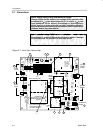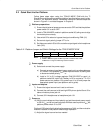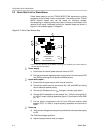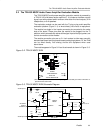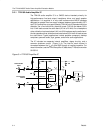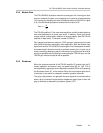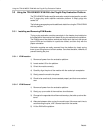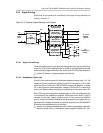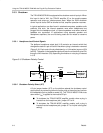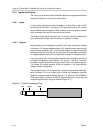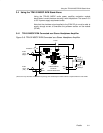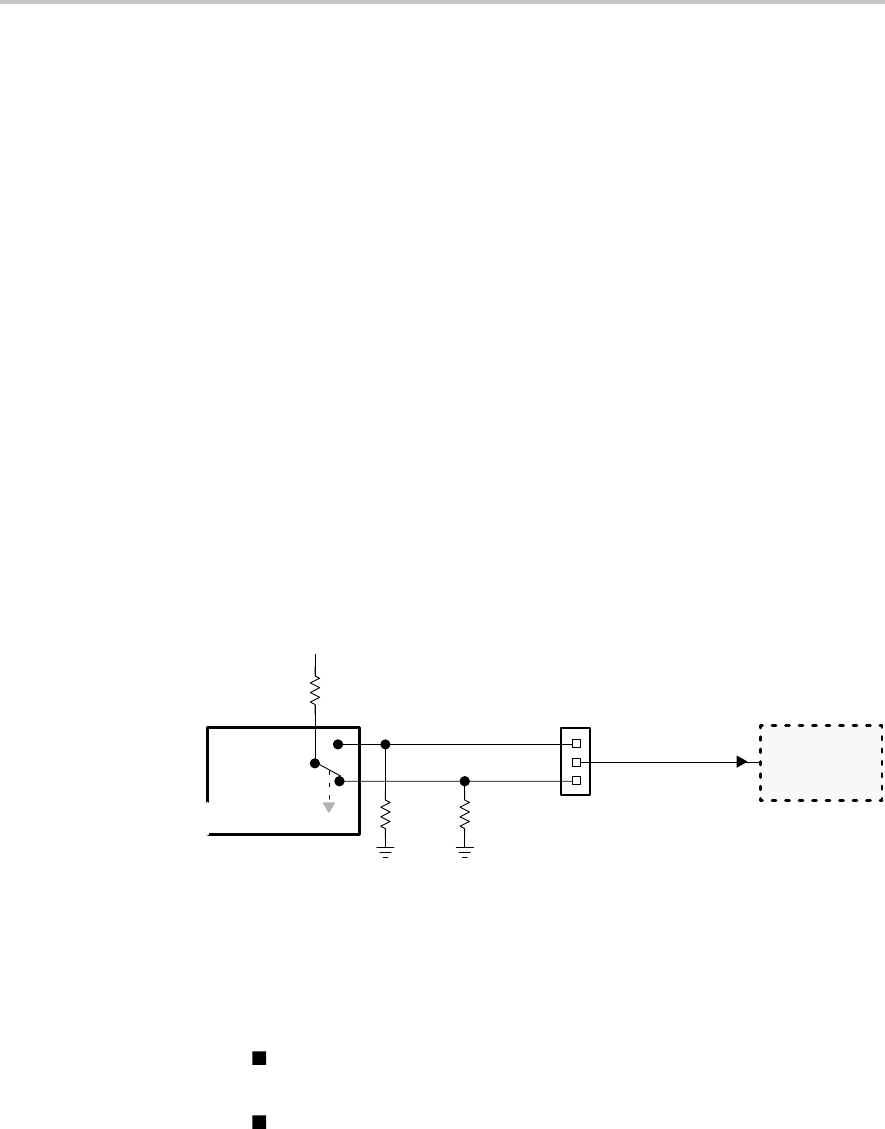
Using the TPA102 MSOP EVM With the Plug-N-Play Evaluation Platform
3-8
Details
3.3.3 Shutdown
The TPA102 MSOP EVM is equipped with a shutdown control input pin. When
this input is tied to V
DD
, the TPA102 amplifier IC on the module ceases
operation and enters an ultralow-power state. When the EVM shutdown
control input is tied to GND or allowed to float, amplifier operation resumes.
In typical applications, as often found in notebook computers, portable audio
products, and such, the internal speakers mute when headphones are
plugged into the headphone jack, or internal speakers mute when external
speakers are connected. In applications using separate speaker and
headphone amplifiers, the one not being used can be muted to conserve
power.
3.3.3.1 Headphone Jack Control Signals
The platform headphone output jack (J10) contains an internal switch that
changes the state of a pair of control lines when a plug is inserted or removed
(Figure 3–6). Each control line is pulled down by a 1-kΩ resistor to ground (R4
and R5). The switch in the headphone jack pulls one line or the other up to V
DD
through a 240-Ω resistor (R3), depending on whether or not a plug is inserted
in J10.
Figure 3–6. Shutdown Polarity Control
J10
Headphone
Jack
R3
240 Ω
R4
1 kΩ
R5
1 kΩ
JP7
U5
Headphone
Amplifier
Lo
Hi
Polarity
V
DD
HP
(U5)
Shutdown
3.3.3.2 Shutdown Polarity Select (JP7)
A 3-pin jumper header (JP7) on the platform selects the shutdown control
signal polarity by connecting either the active-high or the active-low line from
the headphone jack to platform socket U5. The TPA102 MSOP EVM shuts
down when V
DD
is applied to the module SD pin.
To shutdown the TPA102 MSOP amplifier module when a plug is
inserted into the headphone jack, jumper JP7 to Hi.
To shutdown the TPA102 MSOP amplifier module until a plug is
inserted into the headphone jack, jumper JP7 to Lo (this is the typical
setting).




